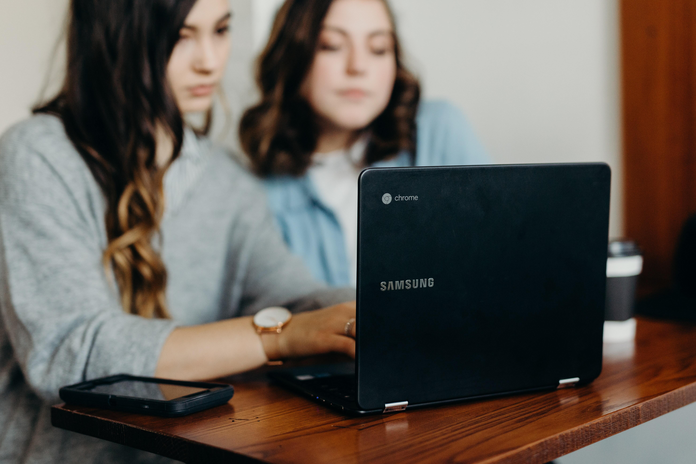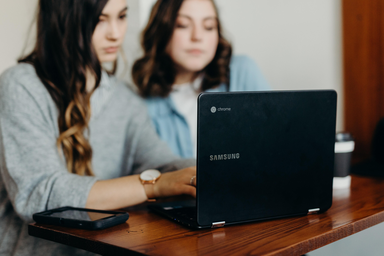Exam season has begun. The library is constantly full, the Starbucks is jam-packed with students hoping their coffee will keep them awake for longer and stress is in the air for sure. I am all too familiar with the feeling of being stressed and needing to camp out at the library for hours on end to get studying done for my upcoming exams. I’ve noticed students struggling to find their study flow and how they are most productive. That is normal; many students are constantly working on growing their study skills, including myself. Over time, I’ve put together some habits that allow me to study successfully. If you’ve noticed perhaps the way you study for or approach exams is causing you to be unsuccessful during testing, this article is for you. Here are seven tips that make my studying better!
- Review class notes the day you take them.
-
Taking notes during lectures is a great first step to studying but it is a pretty passive task in general. Most of the time, lectures go through so many topics very quickly, so I find myself just trying to keep up and get the important information written down. That means that the information hasn’t had time to settle into my mind just yet.
I like to wait until the end of the day and then review the notes I took in class. I start by annotating my notes — I use a color-coded system to highlight important terms, possible test questions, examples from class and definitions. Then, I write reminders to myself about the specific material at hand in the margins of my notes. I write small notes to myself like, “watch a video explaining this later” or “review this slide in the PowerPoint” to make the gaps in my knowledge easier to identify later in my study process.
- Condense the information and then condense it all again.
-
In the five to seven days leading up to a big exam, I begin condensing information. I start a new page of notes and isolate around half of the original material in my notes, only focusing on the most important information. While I do this, I brainstorm possible quiz or test questions that could be asked about the material.
Once I’ve done this, I write down possible questions and then quiz myself about the material until I have it down. I always ask my friends to ask me the questions I created for two reasons: 1) I can’t accidentally “cheat” and peek at my notes, since doing so would give me a false sense of understanding the material even if I don’t completely, and 2) I know I understand the material fully if I am able to explain it well to someone who doesn’t know anything about the topic at hand.
- Practice makes progress.
-
Practice problems are your best friend, especially in STEM subjects. I know the feeling of trying to practice problems and being unsuccessful but the best way to get better at them is to review your mistakes and watch your growth over time. The best feeling going into an exam is knowing you studied so many different types of problems that you can basically predict what to expect on your test.
- Eat good food and hydrate!
-
This is the study habit I struggle the most with. When I find myself working through multiple tasks on my to-do list and feeling stressed, I tend to put eating and taking care of my health at the bottom of my priorities. Although at the moment it feels like I’m clearing more time to do work, not prioritizing food, hydration and rest becomes my most counterproductive and prominent issue while studying.
According to the article “The Importance of Eating Healthy for Students,” “research has shown that students are able to learn better when they’re well nourished, and eating healthy meals has been linked to higher grades, better memory, alertness and faster information processing.”
Your brain requires enough energy to study, and that energy comes from the food you put in your body. Recently, I’ve begun setting time aside in my day to eat food so that it feels just as important as my other tasks. I also have tried to carry water with me everywhere, and I can already tell that hydrating more has made a huge difference in my energy levels.
- Get good sleep!
-
Not just a few hours of sleep, but high-quality sleep for a full seven to eight hours. I know sometimes it feels like staying up a few more hours can help get more work done but sleep is more important and you’ll perform those same tasks much more efficiently after a night of sleep. I have learned that while I used to think I was a “night owl,” I didn’t realize I am actually much more productive during the daytime. Now, I make sure to sleep by midnight at the latest and wake up earlier the next day if I have extra work to do. Doing this has helped my energy levels and ability to focus on what I do.
- Put your phone away.
-
I know, I know. Your phone isn’t distracting you that badly. Maybe you just have it out next to you but you’re not really checking your phone, right? Unfortunately, you may actually be more affected by your phone just sitting next to you than you believe you are.
Researchers at the University of Texas Austin, the University of San Diego and Disney Research conducted a study where participants had to focus on a specific task under different conditions. One group had their phone on their desk, another group had it in a backpack and the third group kept their phone in a different room. The groups self-reported that they felt productive in all three scenarios but results showed that participants who had their phones on the desk performed the worst compared to other groups. Researchers believed that the highest performing group was successful because they not only “were able to keep their phones … out of their hands but also out of their (conscious) minds.” In other words, even if you’re not actively holding your phone, it negatively affects your ability to focus — and therefore, study — by simply being next to you.
- Use your downtime!
-
This is my biggest study tip for college students that has changed my life. There is no rule that says you can only start homework or studying at the end of the day. We often have time between classes during the day when we don’t do much productive work because it may seem like a short amount of time. If you make use of these time slots wisely, though, you will free up so much time out of your night and be able to sleep for as long as you should.
The most important part to remember when it comes to studying is that different methods work for different people. It takes trial and error to find what works for you! If you’re not sure where to start, hopefully, these seven tips can start guiding you in a helpful direction.



